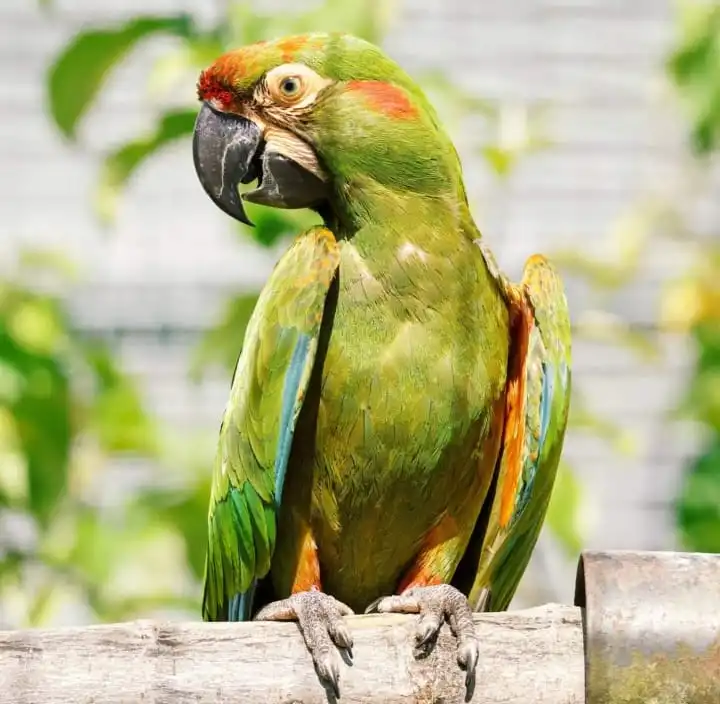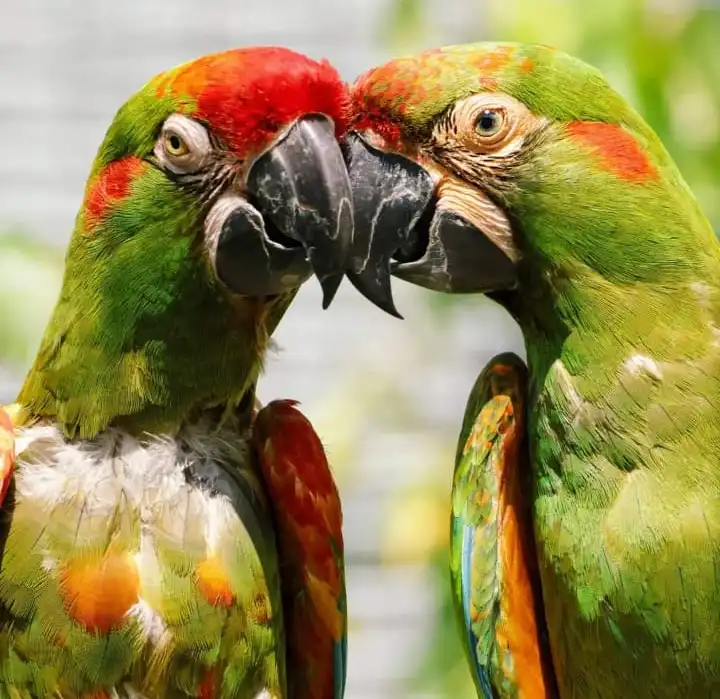Less than 300 critically endangered parrots, known as red-fronted macaws from Bolivia, are left in the wild.
The Twycross Zoo in Leicester, England, is now home to one of the most critically endangered parrots in the world, as per a statement released by the Zoo authorities.
The red-fronted macaw, which comes from Bolivia, is thought to be on the verge of extinction, with less than 300 parrots remaining in the wild, according to the International Union for Conservation of Nature (IUCN) Red List.
SIMILAR: Know more about this widowed & lonely goose from Iowa who found love once again!
Two of the birds have been donated to the Twycross Zoo as part of conservation efforts and to support breeding, with the goal that love grows between the two and their numbers will increase.
The female bird has been donated by the Welsh Mountain Zoo in Wales, while the male is from the Edinburgh Zoo in Scotland and the pair has been labeled as the “hottest new couple” in town by Zoo officials.
As per the American Bird Conservancy, the population of the red-fronted macaws is rapidly declining due to illegal trafficking of the birds for pet trade and killings by local farmers who consider them a nuisance.
Rhys McKie, assistant bird curator from Twycross Zoo, has also previously worked at the Edinburgh Zoo, where the male macaw was born.
He thinks it is “always an exciting day when a new animal arrives” and is waiting for his meeting with the bird, as well as the birds’ union.
McKie added that when the incredibly rare bird hatched at the Edinburgh Zoo last year, it was special because it was the species’ first successful breeding there in 15 years.

The fact that he will be able to take care of the parrots again at the Twycross Zoo and be a part of conservation programs to breed more of the rare species “is very momentous” for him.
The beautiful red-fronted macaw is known for its red forehead, a red patch over its ears, and its blue-green long feathers.
Found in the dry forests and semi-desert-like conditions of the Andes mountains of Bolivia, the parrots feed on desert plants like cactus, making them a unique species.
According to Dr Rebecca Biddle, director of conservation at the Twycross Zoo, she was proud that their zoo was leading the conservation efforts of the incredibly important species.
The zoo officials hope visitors will be pleased to witness the gorgeous macaw couple and other parrot species in their parrot habitat.

